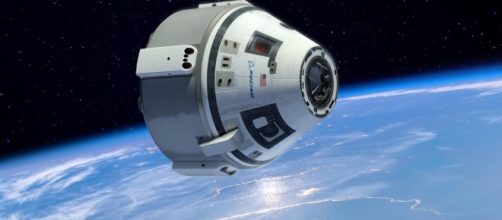While SpaceX is the cool kid of the aerospace business, albeit with a bad boy reputation due to its tendency to not fulfill promises in the time frame indicated, its crewed version of the Dragon is not the only commercially operated, publicaly funded spacecraft being developed. Boeing is building and testing the Starliner, a crewed vehicle that, like Dragon, will take astronauts to and from the international space station in a year or so. However, as Hot Air suggests, the Starliner has run into an unexpected problem, that being the Atlas 5 launch vehicles it will use and the Russian-made rocket engine, the RD-180.
The problem is that the Atlas-5 has to be certified as human rated to launch people on top of it. Since the RD-180 is partly foreign made, as a joint venture between U.S. joint venture of Pratt & Whitney Rocketdyne and NPO Energomash, getting design specifications has proven to be a challenge.
The bigger problem is the fact that an American spacecraft, built to ween NASA off of dependence on the Russians for rides into space, will still be dependent on the Russians. Putin already threatened to boot American astronauts off of the International Space Station by denying them rides on the Soyuz. He might, should he be so inclined, cut off shipments of the RD-180, grounding the Atlas-5/
To be sure, the military, which also used the Atlas-5 to launch satellites, has recognized the problem for years and has been rushing to develop an American built engine to substitute for the RD-180 in the upcoming Vulcan rocket.
The leading contender for that engine is the Blue Origin BE-4. But Alabama politicians are pushing for the Air Force to adopt the Aerojet Rocketdyne AR-1 which, not coincidentally, will be produced in that state. Ars Technica notes that the BE-4 is a year or so farther along that the AR-1 and is cheaper.
Just to add a new wrinkle to the mess, Sen. John McCain is offering an amendment to the defense authorization bill to make certain that none of the money used to procure new RD-180 engines does not wind up in the pockets of Russian leaders who are under economic sanctions because of the Rape of the Crimea.
The partnership with Russia seemed like a good idea in the 1990s when Moscow was more reasonable. That supposition is not the case now.

